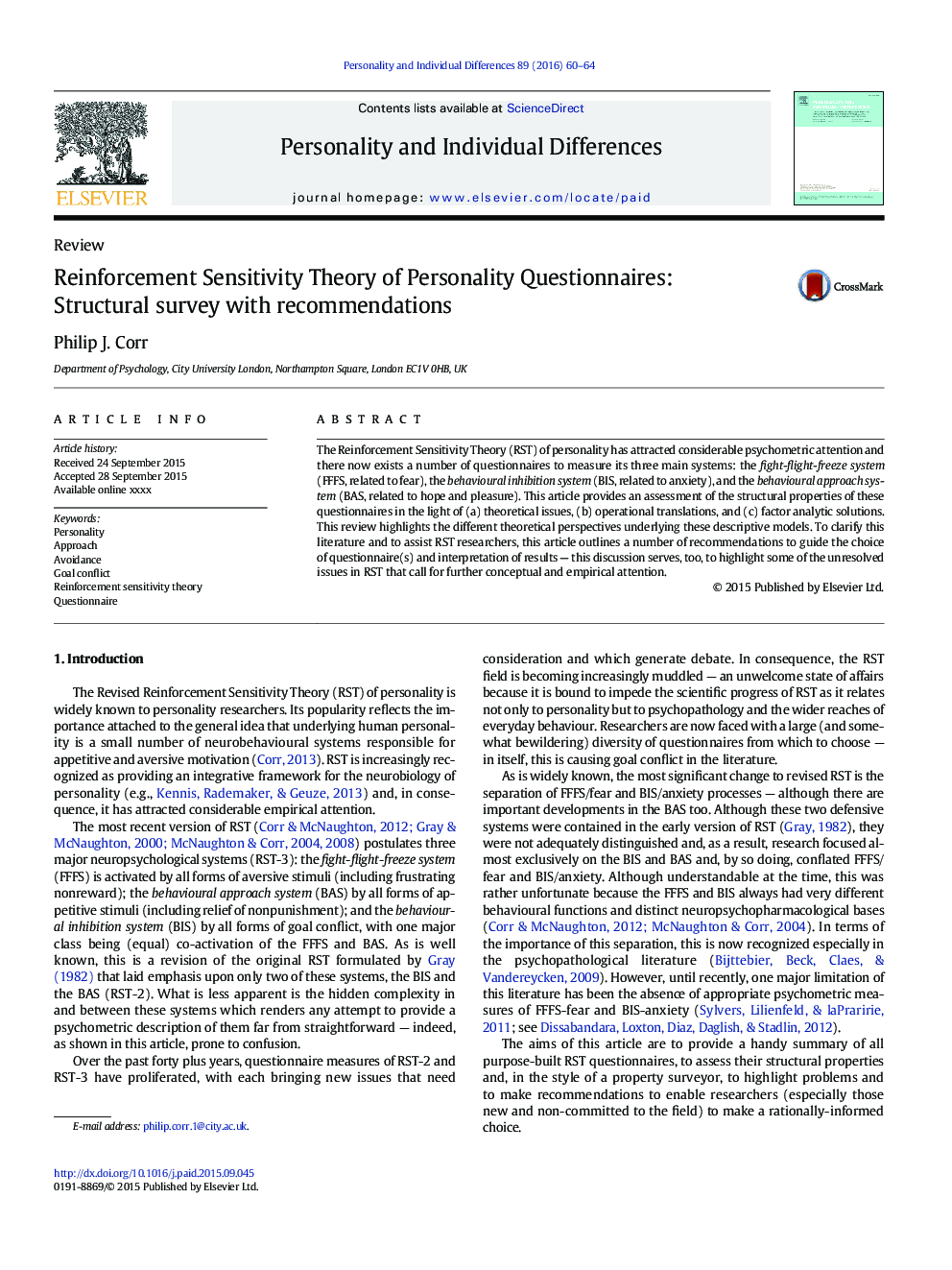| Article ID | Journal | Published Year | Pages | File Type |
|---|---|---|---|---|
| 7250625 | Personality and Individual Differences | 2016 | 5 Pages |
Abstract
The Reinforcement Sensitivity Theory (RST) of personality has attracted considerable psychometric attention and there now exists a number of questionnaires to measure its three main systems: the fight-flight-freeze system (FFFS, related to fear), the behavioural inhibition system (BIS, related to anxiety), and the behavioural approach system (BAS, related to hope and pleasure). This article provides an assessment of the structural properties of these questionnaires in the light of (a) theoretical issues, (b) operational translations, and (c) factor analytic solutions. This review highlights the different theoretical perspectives underlying these descriptive models. To clarify this literature and to assist RST researchers, this article outlines a number of recommendations to guide the choice of questionnaire(s) and interpretation of results - this discussion serves, too, to highlight some of the unresolved issues in RST that call for further conceptual and empirical attention.
Related Topics
Life Sciences
Neuroscience
Behavioral Neuroscience
Authors
Philip J. Corr,
